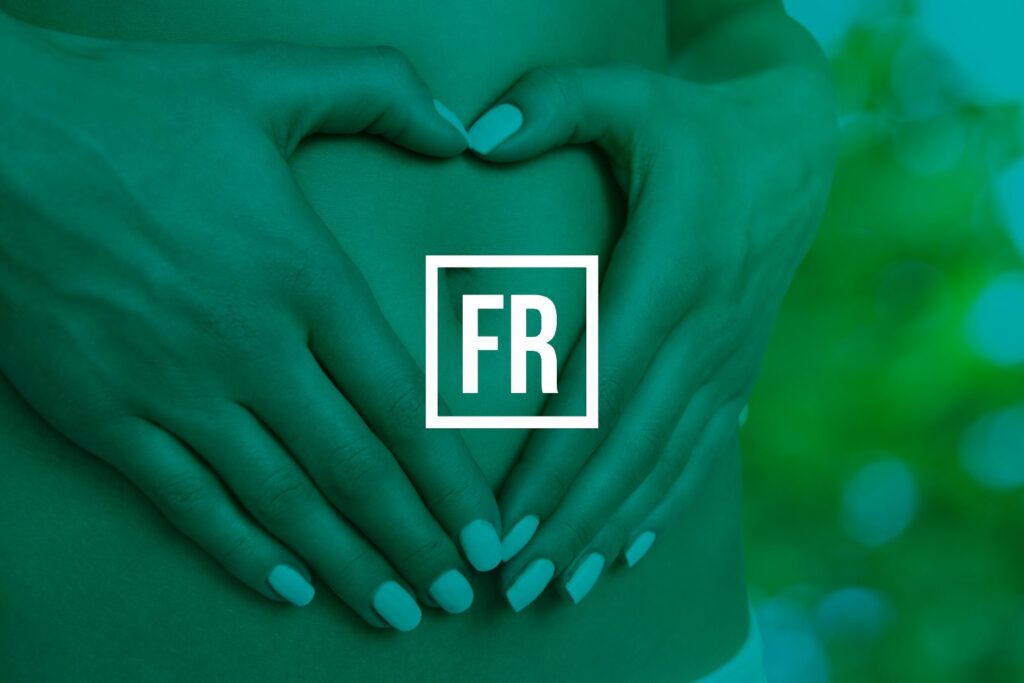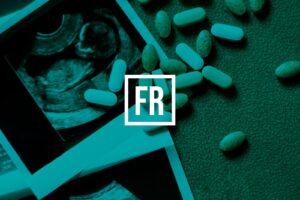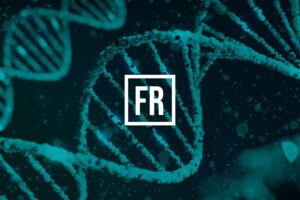Donors, difference and decision-making
This is the first of a three-part series, with Parts 2 and 3 appearing in the next editions of Fertility Road magazine. What the series aims to do is to explore how donor conception is different, how that might feel and what the implications might be at different stages in family life. The articles follow the lifespan of a family from decision-making (this article) through to pregnancy and a child’s early years, before continuing the story in Part 3 to see what might come up for families with a teenager and beyond. The element of ‘difference’ permeates those stages in various ways and relates to some of the questions people ask and the things that need to be considered.
Difference
The word ‘difference’ is important in this series because I think this is a big part of what people struggle with. It might be the difference in terms of what you expected and hoped for, or it might be the difference in relation to the more ‘conventional’ way that babies are made or family structures. What does that difference mean, to you, your partner if you have one, your friends and family and what might it mean for any child you conceive? Does difference come with judgement or curiosity? Does it mean a break from trusted norms or an invitation to something new? Having a child who was made in a different way or being a different kind of family, can feel uncomfortable for some people. If you already have a child and are considering donor conception for a second child, you may be thinking about how to balance that difference within the family. You may wonder if others will treat you or your child differently. People, including children, often want to be similar to everyone else and fit in.
Dreams and Plan A
Most people, assuming they want children, will have a vision of how they imagine their family to be. Part of this is a lovely day-dreaming of the future, wondering about a boy or a girl, thinking about what those children might be like and imagining life as a parent. This dreaming is probably more common for women, but men can also have a picture of what they imagine family life to look like, especially once they start seriously thinking they would like to start trying for a baby. For many people, particularly women, the longing for a child can be intense and when things don’t go smoothly the resulting emotional turbulence can be overwhelming. This is often the point at which people are considering donor conception. Things haven’t gone quite to plan and now you are being offered an alternative (different) plan and you need to work out if this is the right way forward for you. Letting go of Plan A can be hard and grieving may be part of that process.
What makes a family?
What is a family and what makes a parent? Is it genes or is it intention and turning up to do the job? Maybe it’s both. It’s certainly a thought-provoking question. In most families there will be a mum and dad who are also the genetic parents and this can be the assumption of what defines a family. But we also know that this isn’t always the case. We know there are step children and adopted children who are most certainly family. It’s true that in donor conception families parents may not have a genetic connection to their children and the children will definitely be genetically related to the sperm, egg or embryo donor. But what are the deeper questions and feelings around the relationship between genetics and family? You might be wondering: will I feel like a ‘real’ parent if I’m not genetically related to my child? How will I feel raising a child who isn’t genetically connected to me and my side of the family? Where do I place this other person, the donor, in our family story? You may also be wondering whether you need to share this information with other people, including friends and family. And you may wonder how children feel about being conceived this way.
Different family types
Single men and women and same-sex couples will always need help from a sperm or egg donor and potentially also a surrogate. For these families, on the one hand there can be a sense of delight that there is a way to have a child, thanks to medical advances and a relaxing of societal expectations. But there are still decisions to make and questions that come up. Some single people would have preferred to do this with a partner. Same-sex couples would probably ideally like to be able to make a baby together with their partner, but biology makes that impossible. So, in these situations, even where there can be a real sense of excitement about having the option to be a parent, people may share some of the feelings and questions with heterosexual couples. And, like heterosexual couples, there can be worries about whether, if you’re the non-genetic parent, you’ll feel like the ‘real’ mum or dad.
Decisions, decisions
Donor conception comes with a raft of decisions that couples using their own eggs and sperm don’t need to think about. The number of decisions, in itself, can make people want to bypass the thinking and just get on with the treatment, whatever is the quickest and most likely to result in a baby. But thinking things through is important. Your choices will have life-long implications for you and your child. It may be hard, possibly painful, to think about the needs of a child who isn’t even conceived yet. You may worry that you will jinx your chances of pregnancy by imagining that child too soon. But it’s really worth investing the time to feel confident in your choices. The first decision might be what kind of donor to use. Should it be someone known to you, a friend or family member, for example? Do you plan to use an anonymous donor who is expecting to remain anonymous forever? Or is the donor going to be unknown to you but willing to share their identity in the future – ‘ID release’? You may be weighing up where to have treatment, what country and what clinic, or making a private arrangement. Your decision will affect what other choices are available to you and the legal framework you’re operating under, including what rights and expectations the donor, you and your child will have. With ID release donors, a child will have the right to get information about their donor and any half siblings if they wish in the future. That might be important to you or your child in the future. But if that option isn’t available, how do you feel about an anonymous donor?
And then there are more decisions
Choosing characteristics to match with the donor is something else to add to the list. Often parents will be looking for physical characteristics (like colouring and height) so that any child will look like they ‘fit’ with the family. You may have specific things you are hoping for, perhaps relating to ethnicity, religion, education, personality or interests. Having more requirements might mean you struggle to find a match, or not within a time-frame or in a country that suits your other requirements. What compromises do you feel able to make? Some countries or clinics won’t offer any choice of donor, or only very limited. Having the clinic take over that decision might be a huge relief, or the lack of involvement might feel more stressful.
On a more practical level, there are conversations around how much this will cost and what funds you have available. Not to mention how much emotional energy you have for what can be a long process. Fertility treatment isn’t cheap and can be gruelling. What is the time frame you’re working to? Weighing up all these choices can be a real challenge, not least because they themselves are sometimes in conflict with each other which means you may have to let some things go.
Navigating the differences
Looking at the things raised here it might feel like it’s just a minefield of questions. These are probably not the questions people imagined when they were day-dreaming about a future family. And, if you have a partner, they may be thinking about it differently, adding another layer. A big part of what can be tough is having to make these complex, important decisions at a time when emotions are running high. Clear thinking may feel impossible and the drive to get pregnant seems like all that matters. Let’s just say, it’s not ideal. And if you’re finding it tricky, it’s no wonder.
What helps people move forward?
It’s helpful to remember that people have navigated through this before. There isn’t just one roadmap for the journey, there are lots. People choose different things, making compromises where necessary, to find something that works for them. Parents need to be comfortable with their decisions and the aim is finding a way forward that you can feel positive about and proud of and that you feel able to share openly with your child. So, how can that be achieved?
Preparation is your friend
What is often most beneficial is peer support from people who are in a similar situation, or a little further along the journey and who can really understand what you are going through. You may not know anyone in your family or friendship group that has done this. You may be different in that regard and it can feel lonely and hard to know where to go for help. That’s partly why our charity, the Donor Conception Network was founded: to help break the isolation people feel and connect them with others over a shared experience. The guidance and support offered can be transformative, both at the decision-making stage and beyond. They say it takes a village to raise children. Well, sometimes it takes a village to help you even contemplate that journey. Everyone needs support and community at different stages of life. For those considering egg, sperm or embryo donation, or raising a family after donor conception, we know that is especially true. Because people have chosen something different it is important to have a space where that difference is shared. A space where the difference isn’t different. That is what we try to create at the Donor Conception Network. Counselling is also incredibly useful, providing professional support and dedicated time to explore difficult feelings. Our Destination Parenthood workshops offer another helpful space for people considering donor conception and we know they can be transformational. There are also some really great books on the topic and, of course, in today’s digital world there are wonderful blogs, webinars and podcasts telling stories, offering wise reflections and hope.
Final thoughts
So, apart from checking out the DC Network website and the support we offer, what would I say to people who are at this ‘thinking and trying’ stage? Firstly, if you’re feeling under pressure, slow down. People are often coming to this after a long period of failed treatments or thinking long and hard about whether to go forward with the plan for a family, and there is a strong urge to get cracking. Make sure you give yourself time to grieve for what was not to be. It might take time to let Plan A go and open up to a different possibility for the future. Of course, you don’t want to spend the next 5 years in limbo, but pressing pause and dedicating a few months to this should mean you can move forward with confidence in your choices. Secondly, even if you aren’t feeling under pressure and already feel very positive about your decision, make sure you give yourself time and space to think through your options, particularly holding your future child in mind. This is possibly the most important decision you’re ever going to make, so it’s worth giving it focus and attention. You’ll be really glad you did and so will your child.
In the next issue, Part 2 will look at ‘difference’ once you’re pregnant or have a young child.






